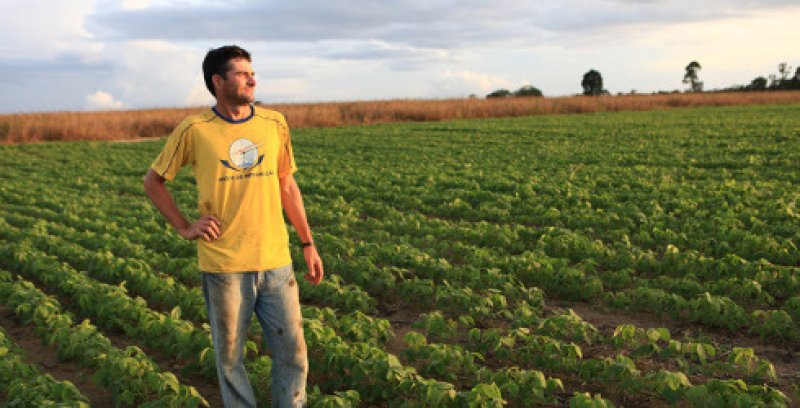The savannah scrubland where Chief João Ponce once hunted deer and wild boar in Brazil has given way to neat rows of soy and corn that a tractor sprays with herbicide. In the next field, silver grain silos shimmer in the hot sun.
Ponce is head of the Uirapuru indigenous community which has allowed local farmers to produce crops on one-third of its 44,500-acre (18,000-hectare) reservation in southwestern Mato Grosso state.
…
“We’re surrounded by farmers. We can’t live off hunting anymore. The animals are gone,” he said, sitting in a hammock in his thatched hut.
But the partnership with non-native farmers, fueled by an insatiable demand for Brazilian soy in China and other markets, is illegal and has alarmed environmentalists.
Brazil’s environmental regulator Ibama [the week of June 3rd] fined six native communities and a dozen farmers on reservation land for using genetically modified crops (GMO) and engaging in large-scale mechanized agriculture. Both are banned on reservation land.
The unprecedented fines totaling 129 million reais ($33 million) mark an unexpected escalation in a dispute between rival federal agencies, environmentalists, farmers and native advocacy groups over Indian tribes getting into commercial agriculture in Brazil’s rapidly expanding farm belt.
…
Ibama fined communities of the Pareci, Nambikwara and Manoki tribes and embargoed 40,000 acres of their land that were being used for large-scale GMO plantations in the municipalities of Campo Novo do Parecis and Conquista do Oeste, or “Conquest of the West,” near the border with Bolivia.
The tribes are pressing to change environmental and Indian laws so that they can keep their plantations and sell their harvests legally. The issue has put Ibama at odds with the Indian affairs agency Funai, which wants to allow the tribes to become farmers.
Read full, original article: Brazilian Tribes Fined for GMO Soy Crops on Reservations































